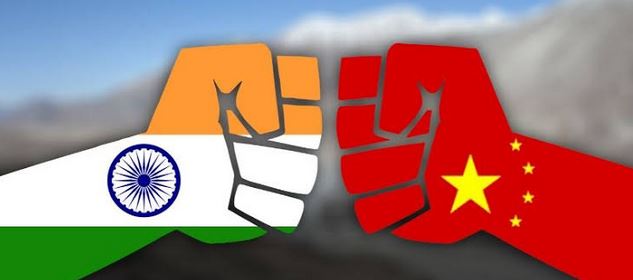
India’s new tenacity, a blow to China
by NorthlinesIndian soft-pedaling about the Sino-Indian border conflict over the past few decades has evidently given China the idea that India can be willy-nilly browbeaten into embracing the Chinese stance, even though governments can make loud noises for public consumption.
The Nehru time and subsequent propensity to give in to the Chinese in the aftermath of their 1962 hostility and decades of struggling to do a decent deal was like an albatross around the neck of New Delhi. These eventually resulted in India practically being taken for granted.
Currently, in the midst of the recent conflict, with the Chinese wanting to take hold of crucial peaks, they are stunned at the reluctance of the Modi government to allow their occupation of strategic border points which would give Beijing a permanent political and military leverage.
Indeed, India’s perseverance is completely reasonable, and a welcome move from the earlier
weak position, but the Chinese are far from reconciled with India’s newly found faith.
Indeed, India’s steadfastness is perfectly understandable and a welcome change from the earlier weak position but the Chinese are far from reconciled to India’s new-found confidence. Hosted previously this week in Moscow by the Russians under the auspices of the Shanghai Cooperation Organisation, Minister of Foreign Affairs S Jaishankar and his Chinese counterpart Wang Yi took different positions in the talks while affirming their purpose for enduring peace and tranquilly.
The Indian side told the Chinese that the recent events in eastern Ladakh undoubtedly had an impact on the stability of bilateral ties, and that an immediate resolution of the current situation was in both nations’ interest. The Chinese side, however, released a declaration that the “Indian side does not consider bilateral ties to be contingent on the border situation”
What the Chinese did acknowledge was that the two are “large developing countries” so what China and India “need right now is cooperation, not confrontation.” While the two sides have broadly agreed on a five-point agenda for de-escalation, the strands of disagreement are sharp enough to expect relations between the two Asian neighbours to be on edge until a political solution at the highest levels is worked out sometime in the future, if at all.
The Indian side said that the provocative behaviour of Chinese frontline troops at numerous incidents of friction along the LAC also showed disregard for bilateral agreements and protocols. The Indian side clearly conveyed that it expected full adherence to all agreements on management of border areas and would not countenance any attempt to change the status quo unilaterally.
The tone and tenor of India’s straightforward assertions and the fact that India has as of now a strong strategic edge have made the Chinese aware of India’s resilience under the new dispensation. Under Manmohan Singh ‘s ten-year legislative dispensation, the Chinese had also managed to get the Congress party to agree to a bilateral deal with the Communist Party of China, which gave the latter an advantageous relationship with India. Now, under Modi’s dispensation, things are different.
Even though the Moscow meeting of Jaishankar and Wang Yi and earlier of Defence Minister Rajnath Singh and his Chinese counterpart may have averted an immediate war, India’s understanding remains that there will be no change in the ground situation for now Even as the meeting was being held in Moscow, the PLA was reinforcing its build-up, as it looks to move further west of Finger 4. To match the build-up, Indian troops were being deployed in large numbers along the Finger 3 ridgeline on the north bank of Pangong Tso.
All said and done, however, China still has some advantages over India in terms of deployment of men and material which cannot be wished away. India has a major challenge on its hands in warding off a full-scale Chinese aggression and in the time that India seems to have bought through diplomacy in Moscow, it needs to considerably augment our ability to meet the Chinese challenge effectively.
India could well need to shop for weapons for this, to comprehensively counter the Chinese benefit. It is without doubt that the recently purchased Rafale fighter planes would contribute to India’s firepower. But with that New Delhi can’t rest stuff. The need of the hour is still more acquisitions and improved muscularity.